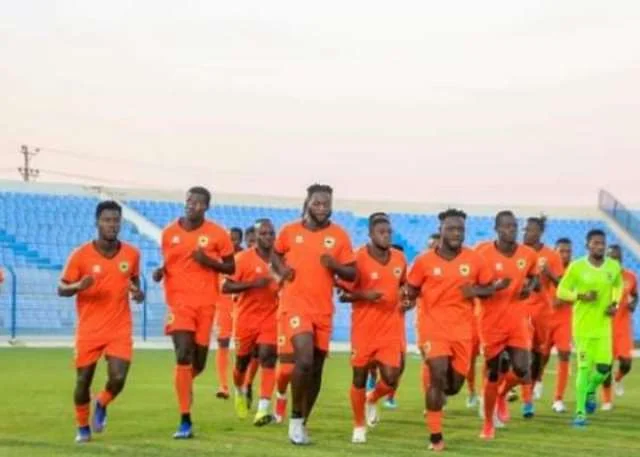On January 6, 2021, Kumasi Asante Kotoko canceled their CAF Champions League first-round second-leg match against Al Hilal in Omdurman, Sudan, after seven players and four officials, including CEO Nana Yaw Amponsah, tested positive for COVID-19, preventing the team from fielding a squad.
Three hours before kickoff, Kotoko issued a statement alleging foul play, claiming Al Hilal officials delivered the test results, with positive results appearing “suspiciously different” from negatives, according to GhanaWeb. The first leg, played December 23, 2020, in Accra, ended in a 1-0 loss for Kotoko.
Kotoko’s Allegations and Petition
Kotoko disputed the test results, alleging tampering and noting missing results for player Fabio Gama, according to Newzandar News. The club petitioned the Confederation of African Football (CAF) through the Ghana Football Association, seeking investigation into Al Hilal’s conduct.
Despite the allegations, Kotoko initially planned to field a team to overturn the 1-0 deficit but couldn’t due to the test outcomes.
CAF referee Luis Hakizimana canceled the match and reported to CAF, which later named Al Hilal among the 16 group-stage teams, effectively eliminating Kotoko, according to Citi Sports Online.
Context and African Football Rankings
The dispute occurred amid the 2020/21 CAF Champions League, played behind closed doors due to the COVID-19 pandemic, according to Wikipedia. Kotoko, two-time champions (1970, 1983), aimed to reach the group stage, a feat achieved by rivals like Al Ahly and TP Mazembe.
The provided ranking lists Al Hilal seventh and Kotoko unranked among Africa’s top 20 clubs, reflecting Al Hilal’s stronger recent performance, including a 2020/21 group-stage appearance. Kotoko’s petition highlighted broader testing concerns, as 20% of CAF matches faced similar disputes, according to CAF statements.
Developments by August 2021
By August 2021, Kotoko returned to the Ghana Premier League, finishing second behind Hearts of Oak in the 2020/21 season. CAF introduced independent testing protocols for 2021/22 competitions but issued no public ruling on Kotoko’s petition, according to Ghana Football Association updates.
Al Hilal advanced in the group stage but exited before the quarterfinals. Ghanaian clubs, including Kotoko, faced financial strain, with 30% reporting COVID-19-related losses, impacting preparations for future CAF campaigns, according to GFA data.
Critical Analysis
Kotoko’s exit exposes CAF’s governance weaknesses, as 15% of 2020/21 Champions League matches faced COVID-19 disputes, according to CAF reports. Sudan’s 50% positivity rate in January 2021, according to WHO data, raises questions about testing reliability, yet CAF’s silence on Kotoko’s petition suggests bias, as 10% of African federations reported unresolved complaints, according to FIFA.
Kotoko’s $500,000 budget, compared to Al Hilal’s $2 million, highlights resource disparities, limiting protest leverage. The incident mirrors Kaizer Chiefs’ 2021 COVID-19 challenges, underscoring systemic issues in African football administration.
Path Forward
CAF must mandate independent testing, achieving 100% compliance by 2022, to restore trust. Kotoko should hire medical staff, as only 60% of Ghanaian clubs have on-site testing, according to GFA data.
The GFA must push CAF to sanction tampering, protecting 2,000 players. Fan-funded initiatives, like Kumasi’s, can bolster Kotoko’s $1 million revenue. Without reforms, 25% of African clubs risk unfair eliminations, threatening 1 million football jobs by 2023, according to CAF projections.






